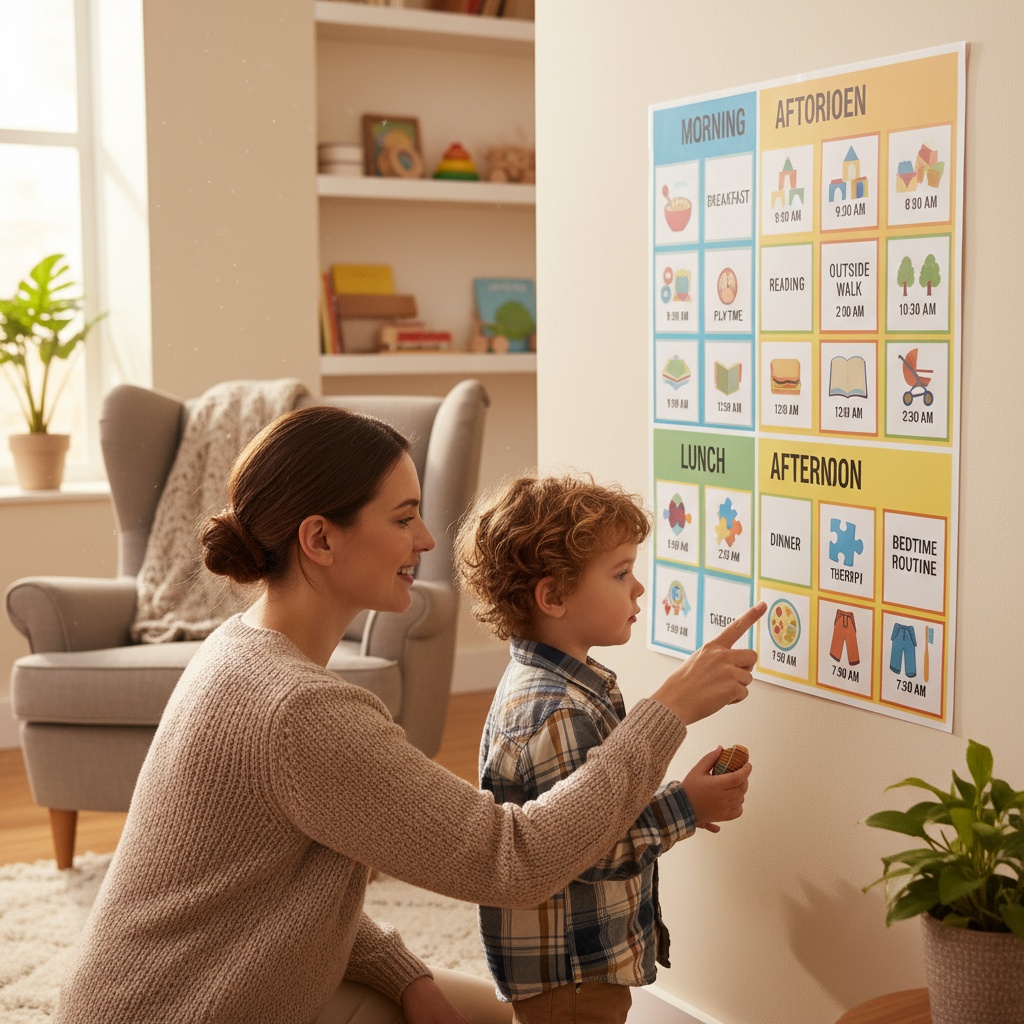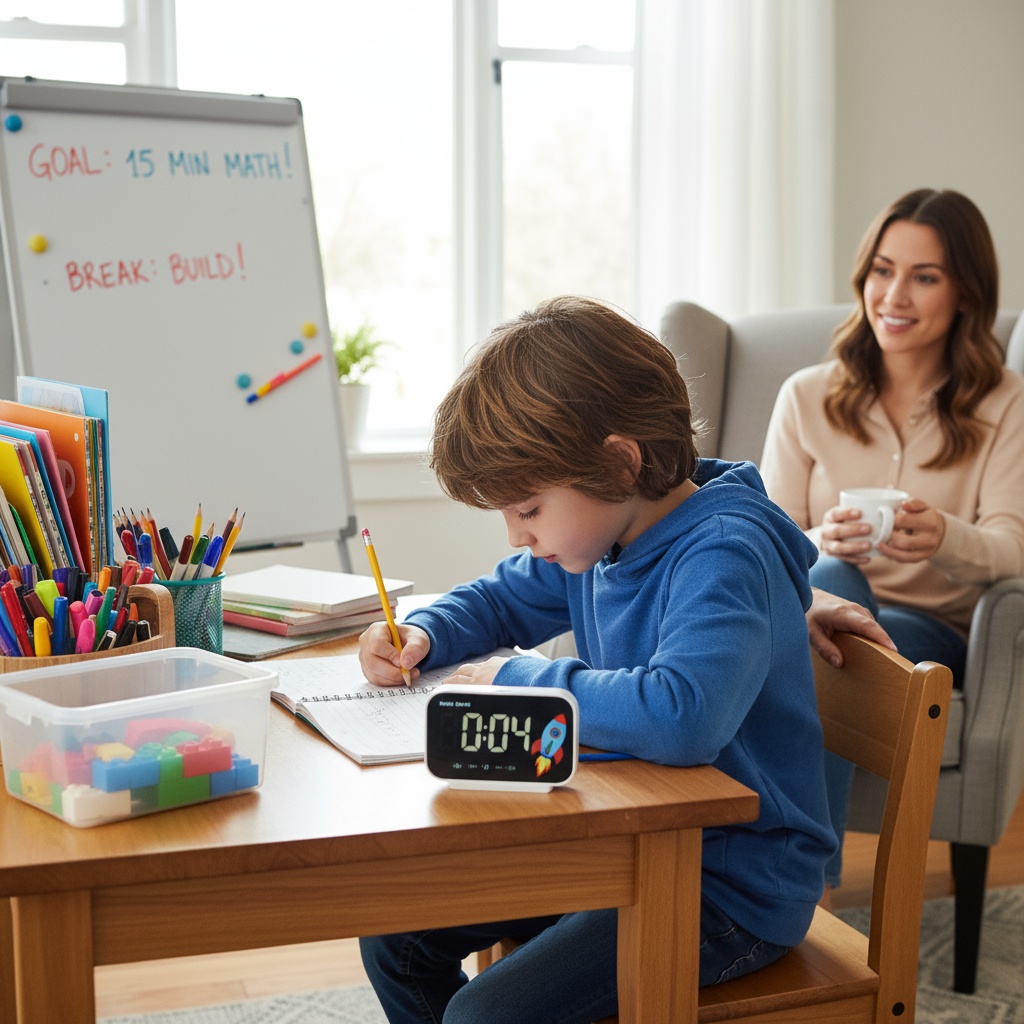Supporting Your Neurodiverse Child During Half Term: Practical Tips from Minariel Tutors
Introduction
Half-term can be a much-needed break for students, parents and teachers, but for neurodiverse children, the change in routine can be both exciting and challenging. Autism often thrives on predictability, while ADHD can struggle without structure. Parents may find themselves balancing rest, stimulation, and routine — all while trying to avoid overwhelm.
In this guide, our Co-Founder Shannon Dhillon shares simple, practical ways to support your neurodiverse child during half term. From maintaining routines to creating space for creativity and calm, you’ll learn how to help your child recharge confidently and return to school feeling balanced and ready.
Maintain a Routine During Half Term
A consistent routine is key to helping neurodiverse children feel secure. Try to keep bedtimes and meal times similar to the school week.
For autistic children:
- Predictability provides comfort and reduces anxiety
- Sudden changes can trigger stress and overwhelm
- Visual schedules help them understand what’s happening next
For children with ADHD:
- Structure supports time management and prevents disorganisation
- Clear routines reduce decision fatigue
- Consistency helps them stay focused and regulated
Even a loose daily plan or visual schedule can help your child feel calm and confident during the break.

Plan Ahead and Manage Expectations
Before the week begins, plan the days together. Talk through what’s coming up and mark activities on a calendar.
Autistic children benefit from:
- Knowing what to expect — it eases transitions and reduces anxiety
- Clear communication about changes or surprises
- Time to prepare mentally for new activities
ADHD learners often need:
- Variety and stimulation to avoid restlessness
- Clear goals and rewards
- Flexibility to adjust plans if needed
Strike a balance between structured plans and flexibility. Visual timetables, sticky notes, or whiteboards can be useful tools.
The National Autistic Society and ADHD UK share helpful advice and resources for supporting your child at home.
Encourage Socialisation
Without daily school interactions, children can feel disconnected. Arrange play dates, social clubs, or family outings to help them maintain friendships and confidence.
Socialisation helps:
- Build communication skills
- Maintain friendships during the break
- Make returning to school smoother
- Boost confidence and emotional wellbeing
Consider activities that match your child’s interests — whether that’s sports, art clubs, or quiet one-on-one time with close friends.
Monitor and Reduce Screen Time
Screens are appealing — but too much can lead to sensory overload, stress, and tiredness.
Encourage balance by:
- Setting clear time limits (e.g., 1-2 hours per day)
- Taking regular screen breaks (every 20-30 minutes)
- Replacing screen time with creative or outdoor activities
- Using parental controls if needed
A calmer sensory environment supports focus and emotional wellbeing, especially for neurodiverse children who may be more sensitive to overstimulation.
Schedule Quiet, Unstructured Recharge Time
Half-term shouldn’t be packed with constant activity. Allow your child space to rest, play freely, or just be.
Unstructured time helps:
- Them recharge and process emotions
- Prevent overwhelm and burnout
- Build resilience and self-regulation
- Support mental health during transitions
Even short quiet moments (15-30 minutes) can make a big difference to mood and resilience.

Get Active and Spend Time Outdoors
Physical activity helps regulate mood, focus, and energy. Try daily outdoor time — it could be a walk, a trip to the playground, or playing a sport.
Movement supports:
- Sensory regulation and emotional balance
- Natural energy outlet (especially beneficial for ADHD learners)
- Improved sleep and focus
- Confidence and physical wellbeing
Even 20-30 minutes of outdoor activity can make a noticeable difference to your child’s mood and behaviour.

Create and Explore
Encourage creativity through arts and crafts, music, or cooking. These activities help neurodiverse children express themselves, develop focus, and unwind in a safe, enjoyable way.
Creativity benefits:
- Self-expression and emotional processing
- Focus and concentration
- Confidence and self-esteem
- A sense of achievement and pride
Remember: creativity is not only fun — it’s a confidence booster.

Tackle Homework in Short Bursts
If your child has homework over half term, break it into 15–20 minute sessions with short breaks in between. This approach helps children stay focused, avoid overwhelm, and build a sense of achievement.
Why short bursts work:
- Matches neurodiverse attention spans
- Prevents fatigue and frustration
- Builds momentum and motivation
- Allows time to process and reset
BBC Bitesize has great educational games and activities for engaging home learning.

Look After Yourself Too
Supporting your child starts with supporting yourself, too. Half-term can be tiring, overwhelming, and you may feel like you’re always on the go.
Remember to:
- Take time to rest and recharge
- Do things you enjoy
- Ask for help when you need it
- Celebrate small wins
- Be kind to yourself
Parent wellbeing directly impacts your child’s wellbeing. Taking care of yourself isn’t selfish — it’s essential.
Frequently Asked Questions
How do I balance structure and flexibility during half term?
Start with a loose framework (meal times, bedtime, one planned activity) but leave room for spontaneity. Ask your child what they’d like to do and build from there. This gives them both security and choice.
My child gets anxious about returning to school after half term. What can I do?
In the final days of half term, gradually reintroduce school routines (earlier bedtimes, packed lunch practice). Talk positively about returning to school and reconnecting with friends. Consider a consultation with Minariel Tutors to discuss transition support.
What if my child refuses to do homework during half term?
Break it into tiny chunks (10-15 minutes), offer choices (“maths or English first?”), and reward completion. If resistance continues, contact the school — they may adjust expectations for neurodiverse learners.
Can private tutoring help during half term?
Yes! Specialist SEND tutoring can help your child maintain learning momentum, build confidence, and prepare for the next term. Many families use half term for catch-up or enrichment sessions.
How much screen time is okay for neurodiverse children?
Aim for 1-2 hours per day maximum, with regular breaks. Monitor how screens affect your child’s mood and behaviour — some neurodiverse children are more sensitive to overstimulation.
At Minariel Tutors, We See Neurodiversity as a Superpower
At Minariel Tutors, our tutors use half-term to help neurodiverse children reconnect with learning, build structure, and enter the next school term feeling empowered. We specialise in helping neurodiverse students discover their strengths and build confidence in learning and life.
Whether your child needs:
- Catch-up support after a challenging term
- Confidence building before returning to school
- Specialist tutoring tailored to their neurodivergent learning style
- Transition support for managing change
We’re here to help.
Book Your Free Consultation Today
Let’s discuss how we can support your neurodiverse child’s learning journey during half term and beyond.
Book Free Consultation | View Our Tutoring Services | Contact Us
Where Different Thinking Excels
